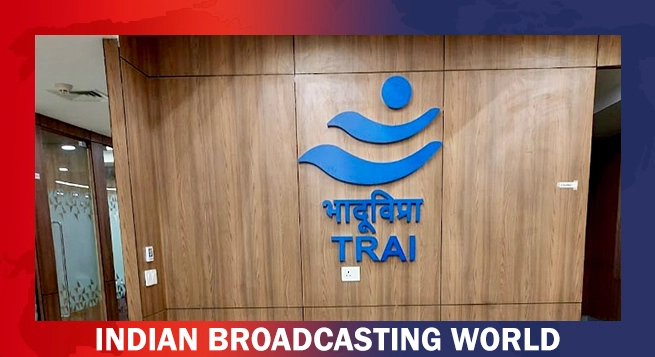If a new set of recommendations of broadcast regulator TRAI is accepted by the Indian federal government in its entirety, then DTH operators are in for major gains.
The Telecom Regulatory Authority of India (TRAI), which also oversees the broadcast sector, yesterday recommended that the authorisation or licence fee for DTH operations that are currently charged at the rate of 8 percent of the adjusted gross revenue (AGR) be slashed to three percent of the AGR.
Going forward, TRAI said that DTH fee should be reduced to zero and totally scrapped after FY 202627. However, it did mention that a one-time non-refundable entry fee of Rs. 10 crore (Rs. 100 million) be levied on both DTH and HITS services.
In its recommendations for ‘Framework for Service Authorisations for provision of Broadcasting Services under the Telecommunications Act, 2023’, TRAI also dwelt on emerging technological trends and made observations on FAST (free and ad supported TV) channels.
“The Authority recommends that a separate authorisation for FAST channels’ distribution may be considered under Television Channel Distribution Services,” TRAI suggested, adding that the government or the Ministry of Information and Broadcasting (MIB) may make a reference to it to provide detailed terms and conditions for the service authorisation for ‘FAST channels distribution service’.
FAST is a streaming service that offers free TV shows and movies in exchange for ads. FAST channels are similar to cable TV, with a scheduled lineup of programming.
The recommended authorisation framework, suggested by TRAI, provides for two distinct sets of terms and conditions. The first set is for the applicant entity intending to obtain authorisation for broadcasting services. The second set is for compliance by the authorised entity for service provisioned during the period of authorisation.
These two sets of terms and conditions, according to TRAI, should be adopted while framing the rules — ‘The Broadcasting (Grant of Service Authorisations) Rules’ and ‘The Broadcasting (Television Channel Broadcasting, Television Channel Distribution, and Radio Broadcasting) Services Rules’.
The broadcast regulator has also suggested restrictions on cross-holding pattern, as prescribed in the extant policy guidelines of DTH and HITS services, be also prescribed for IPTV service, while adding that the government may consider “extension of restrictions on cross-holding pattern” to be extended to MSOs or any other distribution service provider notified by the Central Government.
“Restrictions on cross-holding pattern should also be prescribed in the terms and conditions for the authorised entities of ‘Television Channel Broadcasting’ for completeness,” it stated.
While observing that authorised entities of ‘Television Channel Distribution Services’ shall endeavour to adopt interoperable STBs to “enhance consumer choice and reduce electronic waste”, TRAI pointed out that another government organisation (TEC) should prepare and notify standards for interoperable STBs and television sets with inbuilt STB functionality. This will likely give a boost to public broadcaster Doordarshan’s free DTH service, FreeDish.
As the federal government had notified the Telecommunications Act, 2023, which repeals the Indian Telegraph Act, 1885, MIB had sought TRAI’s recommendations on the terms and conditions, including fees or charges, for authorisation to provide broadcasting services, aligning it to the Telecommunications Act, 2023 and harmonizing the terms and conditions across various service providers.
Some of the main points of the recommendations are the following:
-
- Broadcasting service authorisations shall be granted under Section 3(1)(a) of the Telecommunications Act, 2023, in place of the extant practice of issuing license/permission under Section 4 of the Indian Telegraph Act, 1885. Terms and conditions for service authorisations shall be notified as Rules under Section 56 of the Telecommunications Act, 2023.
-
- Grant of service authorisation under Section 3(1)(a) should be in the form of an authorisation document containing essential details pertaining to the service. The format of the authorisation document has been recommended.
-
- The terms and conditions for ‘Grant of Service Authorisations’ have been harmonized for similar services and covers eligibility criteria, application process and other relevant details/information required by an applicant entity before applying for service authorisation.
-
- Migration of existing licensee/permission holders to new authorisation regime shall be voluntary, till the expiry of their license/permission. Further, no processing fee or entry fee will be required for migration, in case of broadcasting services. However, the validity period of the respective service authorisation should be from the effective date of migration to the authorisation regime, irrespective of the validity period of existing license/permission.
-
- Addition of new services, namely, ‘Ground-based Broadcasting of a Television Channel’ and ‘Low Power Small Range Radio Service’, based on earlier recommendations of the Authority.
-
- The terms and conditions for service provisioning encompasses two parts, namely, ‘Common Terms and Conditions’ applicable to all broadcasting service authorisations in a harmonized manner and ‘Specific Terms and Conditions’ applicable to service specific authorisations.
-
- To protect the interests of service providers, it has been recommended that amendments to terms and conditions of service authorisations (except for reasons of National Security) shall require TRAI‘s recommendations.
-
- Mandatory co-location should be removed for authorised entities of Radio Broadcasting Services.
-
- Infrastructure sharing, on a voluntary basis, among broadcasting service providers as well as with the telecom service providers/infrastructure providers, wherever technically and commercially feasible, has been recommended.
- Authorised entities of ‘Television Channel Distribution Services’ shall endeavour to adopt interoperable STBs to enhance consumer choice and reduce electronic waste.
-
- The minimum net worth requirement of Rs. 100 crore for the Internet Service Providers to provide IPTV Service is recommended to be removed and the same should be aligned with the provisions contained in the authorisation for Internet Services to be issued by DoT.
- Terms and conditions for Radio Broadcasting Service have been made technology agnostic enabling adoption of digital technology.
-
- Service authorisation for ‘Terrestrial Radio Service’ to be delinked from frequency assignment and the auction of spectrum for frequency assignment for Terrestrial Radio Service shall be done separately.
-
- In addition to broadcasting of radio channel(s), the authorised entities for Terrestrial Radio Service should be allowed streaming the same content through the internet concurrently without any user control.
-
- MIB should prescribe separate Programme Code and Advertisement Code for radio broadcasting service providers.
-
- The terms and conditions including fees and charges for various broadcasting services, particularly in the ‘Television Channel Distribution Services’, have been harmonized with the provisions in the Telecommunications Act, 2023. Salient
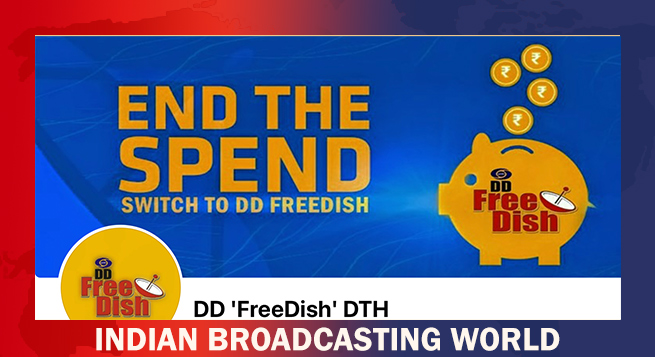 DD FreeDish subs base 49mn homes; likely to reach 53mn: FICCI-EY report
DD FreeDish subs base 49mn homes; likely to reach 53mn: FICCI-EY report 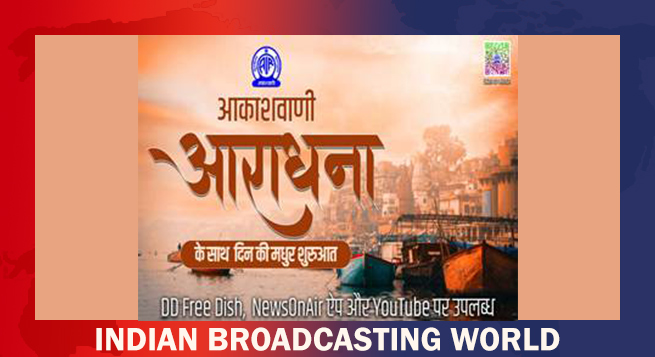 Akashvani’s Aradhana channel to air special Navratri shows
Akashvani’s Aradhana channel to air special Navratri shows  Digital overtakes TV as Indian M&E growth slows down
Digital overtakes TV as Indian M&E growth slows down  Abir Gulaal’ set to release on May 9
Abir Gulaal’ set to release on May 9 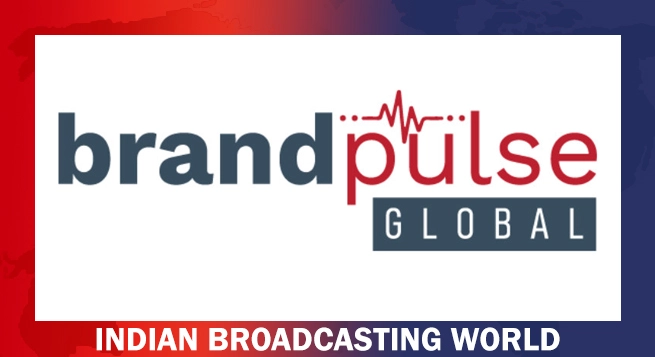 Understanding viewer behavior: Key insights from audience engagement research
Understanding viewer behavior: Key insights from audience engagement research 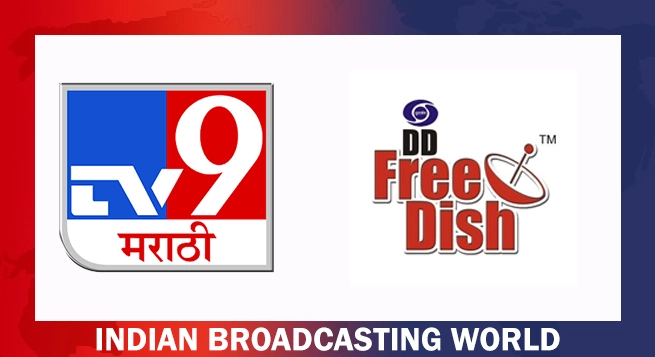 TV9 Marathi joins DD Free Dish
TV9 Marathi joins DD Free Dish  JioHotstar, Big B to bring Ram Navami celebrations live from Ayodhya on April 6
JioHotstar, Big B to bring Ram Navami celebrations live from Ayodhya on April 6 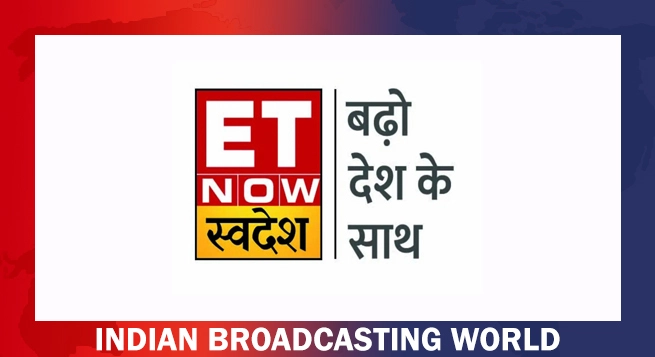 ET Now Swadesh hosts ‘The Gems of Rajasthan’
ET Now Swadesh hosts ‘The Gems of Rajasthan’ 


